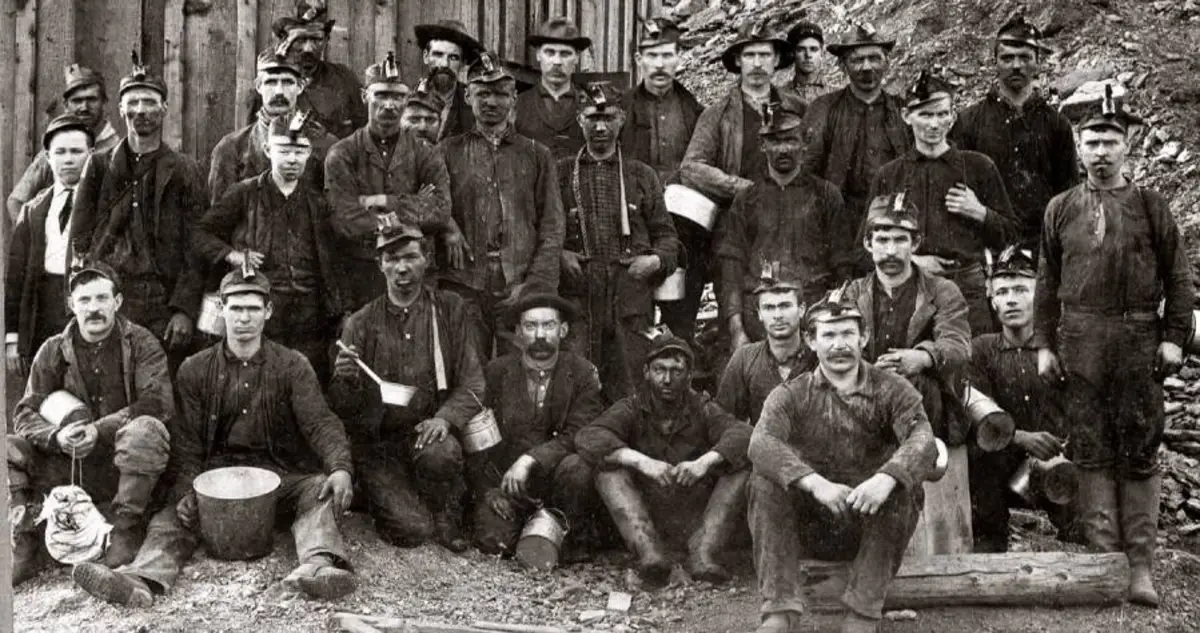Despite being the namesake of a Native American (who took not a single step in borough limits), Jim Thorpe is dripping with Irish American History. In more recent years, Irish Americans poured into the streets of downtown for the now retired annual St. Paddy’s Day Parade — decorated in green and white, boasting graphic tees of “KISS ME I'M IRISH” and many perfumed with beer and spirits.
Albeit a fun place to celebrate, it’s important to remember the oppression, and calamity that ties the Irish to Jim Thorpe history.
The now quaint vacation spot, much like the rest of Carbon County, was built on cheap labor from the exploitation of immigrant workers. The Pennsylvania coal region existed for more than a century with little other than a train, miner villages, and despair. The coal mines in Carbon County employed Irish immigrants that came seeking salvation from the infamous potato famine at home.
The Molly Maguires were a 19th century secret society originating in Ireland, with off shoots popping up in other parts of the US and Europe. While the connection between the Irish Mollies and the rebellious coal miners who died at the hands of a coal tycoon in Pennsylvania is not concrete, in Jim Thorpe it’s pretty widely accepted that “Molly Maguires” is much more than the name of a popular pub in the center of town.

Alleged members of the “Mollies” were among the tens of thousands of immigrants living and and working in deplorable conditions in the anthracite region in the late 1700's and 1800's. Workers were controlled top to bottom by the owners of the mines and railroads — they were the landlords, the store owners, and the boss.

In Carbon County, this was Franklin B. Gowen: president of the Philadelphia and Reading Railroad, and Reading Cast and Iron company. Despite communal cries for higher wages, fair housing and increased safety measures in the mines (more exits, ventilation, and updated equipment), Gowens' agenda was to dodge associated overhead costs, and keep his profits high. He refused change.
Adding to the collective unrest among the Irishmen, immigrant workers began being drafted into the US Civil War. Finally, after the Avondale mine fire took the lives of 110 workers in Schuylkill county (1869), there was uproar in the anthracite region.
Gowen hired Pinkerton Detective Company to investigate a string of violent crimes including murders, arsons and terrorism. To do so, the agency groomed a detective, James McParland, to go undercover and fully infiltrate the lives of the alleged “Mollies”.

Based almost entirely on McParland's testimony, twenty men were wrongly accused, prosecuted, and hanged for crimes to silence their fight against low wages. The prosecutor? Franklin B. Gowen himself. Seven of the executions were carried out in Jim Thorpe.
It’s believed convicted Molly, Alexander Campbell recited his final words, and left his handprint in his jail cell before being led to the gallows.
“There is proof of my words. That mark of mine will never be wiped out. It will remain forever to shame the county for hanging an innocent man."
There is still a handprint visible in this jail cell at the Old Jail Museum in Jim Thorpe.

Jim Thorpe is a fitting place to pay homage to the Irish in March. Sure, you’ll want to hit the pub for a Guinness or a festive green cocktail, but it’s hard to ignore the storied past of the Irish here. From the haunting handprint at the Old Jail Museum, to the striking detail inside the Church of Immaculate Conception (the worship place for Irish built in 1848) you can’t walk far without a trace of the triumphant story of the Molly Maguires.